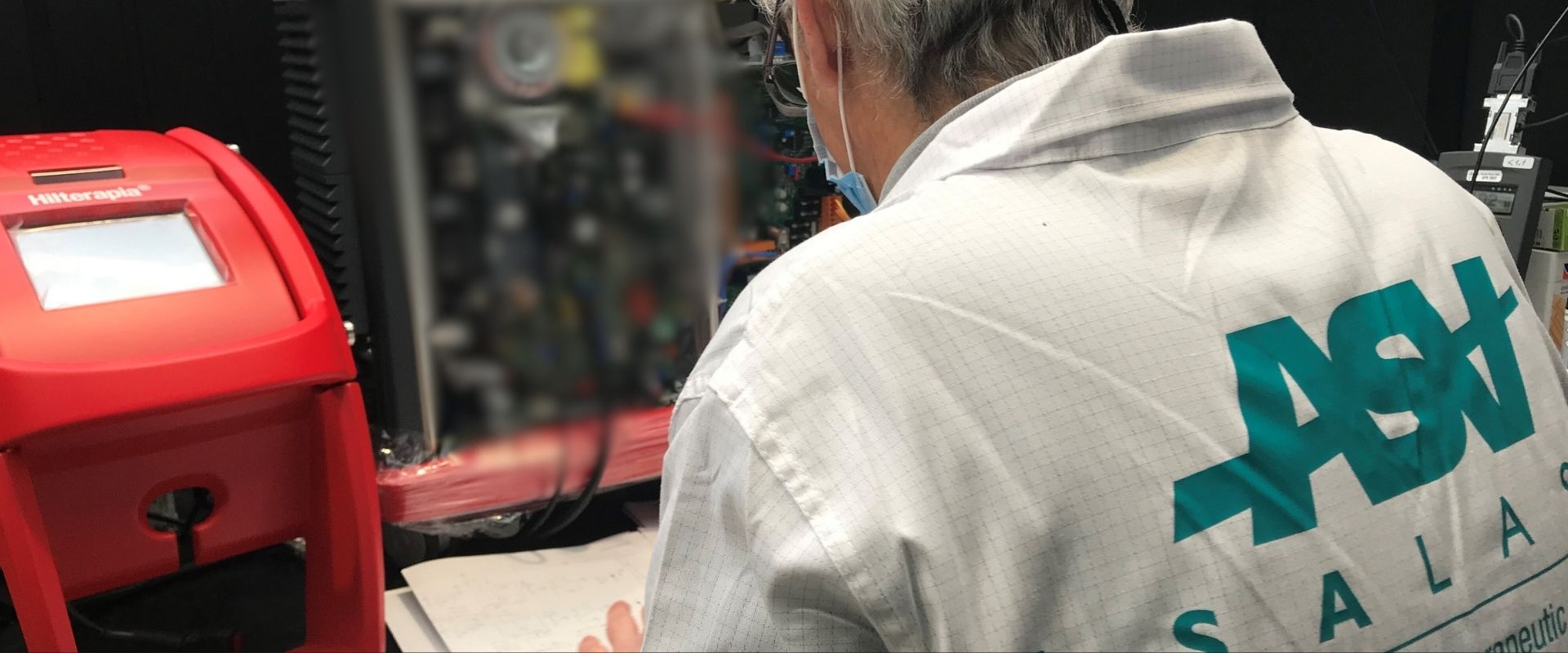That music would shape his life was written in the stars, but above all in his last name. Stefano Basso, ASA Production Operator, approached the 7 notes "through family," thanks to an older brother from whom he stole his first LPs. Pink Floyd's “The Dark Side of the Moon” was my first introduction to music with a capital “M”. But when the bar starts this high, everything that comes after has an endless climb to try to reach the same level. But it was the second LP, “Made in Japan” by Deep Purple, that represented the epiphany: the drums overwhelmed me and convinced me that this was my path. In my first year of high school, I rented a drum kit, and that was the moment my journey began. I took courses, I studied, but I never fully committed myself...”
What did music teach you?
Discipline. But also, creativity and experimentation. Nowadays, however, I have hung up my drumsticks, because when the effort outweighs the fun, it's time to stop. In any case, I remain deeply convinced of how crucial the role of a drummer is in a band. Although the drums are often the most mistreated and relegated instrument, they actually represent the backbone not only because they set the pace, but also because they are capable of compensating for the mistakes of the rest of the group. Whenever necessary, the drums chase, recover, adapt, managing to bypass others’ inaccuracies as well.
What do you bring of this approach to your daily work?
Rhythm and organisation. As a drummer, however, to have the right rhythm, I demand a lot from the quality of my own sound, but also from that of others.
What kind of music is played at ASA?
It's certainly not just one kind as the choice depends greatly on what you're doing at a given moment. Ultimately, however, rhythm must always remain central. If, however, I had to choose a composer, I'd go with John Coltrane and his version of “My Favourite Thing”. A song with a wonderful melody that requires constant attention and the ability to never lose sight of the rhythm.
Is ASA a band or an orchestra?
For 30 years, we've been a symphony orchestra tuning our instruments. Individually, we strum, but together, we can truly reach high levels. The key is to use a shared metronome and to find the right groove.
Not just as a musician, but as a technician—how do you find it?
I believe everyone must learn to take a step back in the name of humility and collaboration. It's helpful to acknowledge that “absolutes” don't exist and to be willing to question yourself. Improvement also comes from questioning what you do, thus finding alternative and perhaps more “correct” solutions.
Is this what you teach the young people you train in the company?
This is one of my activities, and it's both an honour and a responsibility. Being able to convey not only practical information, but above all an approach to carrying out a job is undoubtedly gratifying, but it becomes extremely challenging if the goal is to convey something that goes beyond the correct way to tighten a bolt. My job is to teach a method, a philosophy, a valuable approach to work.
Who taught this to you?
My father, a great teacher and a great critic. Today I identify greatly with him. It comforts me to think that, as time passes, if I give him credit for what he taught me, the same will happen in the future with my students.
That teaching is in your DNA is also demonstrated by a recent plaque you were awarded as a Diving Instructor...
They gave me this recognition for 25 years of continuous activity. A tangible sign of my ageing and of my boundless love for the water. My passion for scuba diving was born from this, and from the Jacques Cousteau documentaries I watched as a child. Along with music, my second flash of inspiration came around the age of five, when I saw the sea. It was love at first sight, and I would even have been willing to invest in training. There was a time when becoming a diving expert could have been a concrete path to pursue. However, life is often more imaginative than we are, and I simply signed up for a course and later became an instructor.
What fascinates you about the underwater world?
The silence. The peace I experience when I'm down there. During those moments, I think only about what I have to do, especially when I'm diving with beginners. I feel the responsibility I have towards them clearly. A lot of work, however, is done out of the water in terms of building a relationship of trust. People should dive with the intention of having fun and feeling good: my greatest satisfaction is seeing them emerge, after their initial hesitation, with a big smile and the desire to do it again.
What do you bring to the workplace from the world of diving?
The belief that you never know enough, that you have to constantly improve and not settle for pseudo-safety. I look with perplexity at those who dive with the certainty of having all the equipment up to standard. I check and double-check, ask questions and raise doubts. However, I believe it's part of my nature and not an approach to diving. For me, work is also the constant pursuit of improvement, of never settling, of challenging myself with the goal of always finding new motivations. It's certainly a double-edged sword, especially when you seek the perfection you also chase in others. After 30 years with ASA, however, I still have the desire to chase it.









